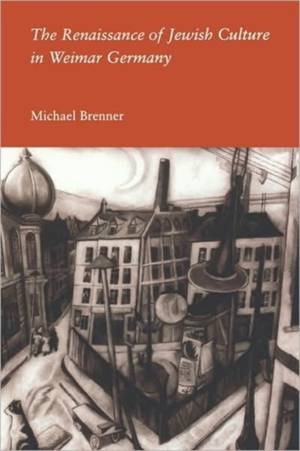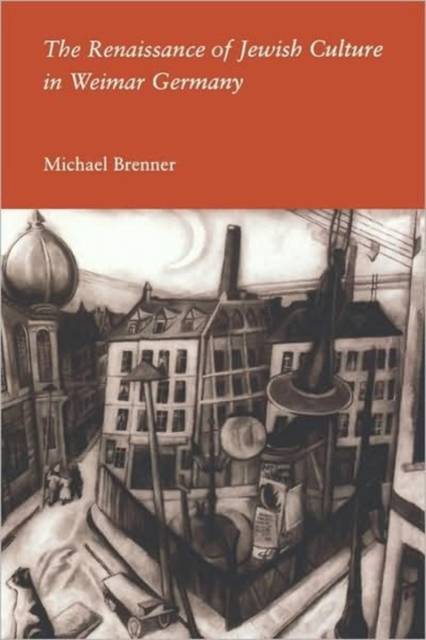
- Afhalen na 1 uur in een winkel met voorraad
- Gratis thuislevering in België vanaf € 30
- Ruim aanbod met 7 miljoen producten
- Afhalen na 1 uur in een winkel met voorraad
- Gratis thuislevering in België vanaf € 30
- Ruim aanbod met 7 miljoen producten
Zoeken
€ 72,95
+ 145 punten
Omschrijving
Although Jewish participation in German society increased after World War I, Jews did not completely assimilate into that society. In fact, says Michael Brenner in this intriguing book, the Jewish population of Weimar Germany became more aware of its Jewishness and created new forms of German-Jewish culture in literature, music, fine arts, education, and scholarship. Brenner presents the first in-depth study of this culture, drawing a fascinating portrait of people in the midst of redefining themselves. The Weimar Jews chose neither a radical break with the past nor a return to the past but instead dressed Jewish traditions in the garb of modern forms of cultural expression. Brenner describes, for example, how modern translations made classic Jewish texts accessible, Jewish museums displayed ceremonial artifacts in a secular framework, musical arrangements transformed synagogue liturgy for concert audiences, and popular novels recalled aspects of the Jewish past. Brenner's work, while bringing this significant historical period to life, illuminates contemporary Jewish issues. The preservation and even enhancement of Jewish distinctiveness, combined with the seemingly successful participation of Jews in a secular, non-Jewish society, offer fresh insight into modern questions of Jewish existence, identity, and integration into other cultures.
Specificaties
Betrokkenen
- Auteur(s):
- Uitgeverij:
Inhoud
- Aantal bladzijden:
- 320
- Taal:
- Engels
Eigenschappen
- Productcode (EAN):
- 9780300077209
- Verschijningsdatum:
- 1/09/1998
- Uitvoering:
- Paperback
- Formaat:
- Trade paperback (VS)
- Afmetingen:
- 157 mm x 235 mm
- Gewicht:
- 449 g

Alleen bij Standaard Boekhandel
+ 145 punten op je klantenkaart van Standaard Boekhandel
Beoordelingen
We publiceren alleen reviews die voldoen aan de voorwaarden voor reviews. Bekijk onze voorwaarden voor reviews.











